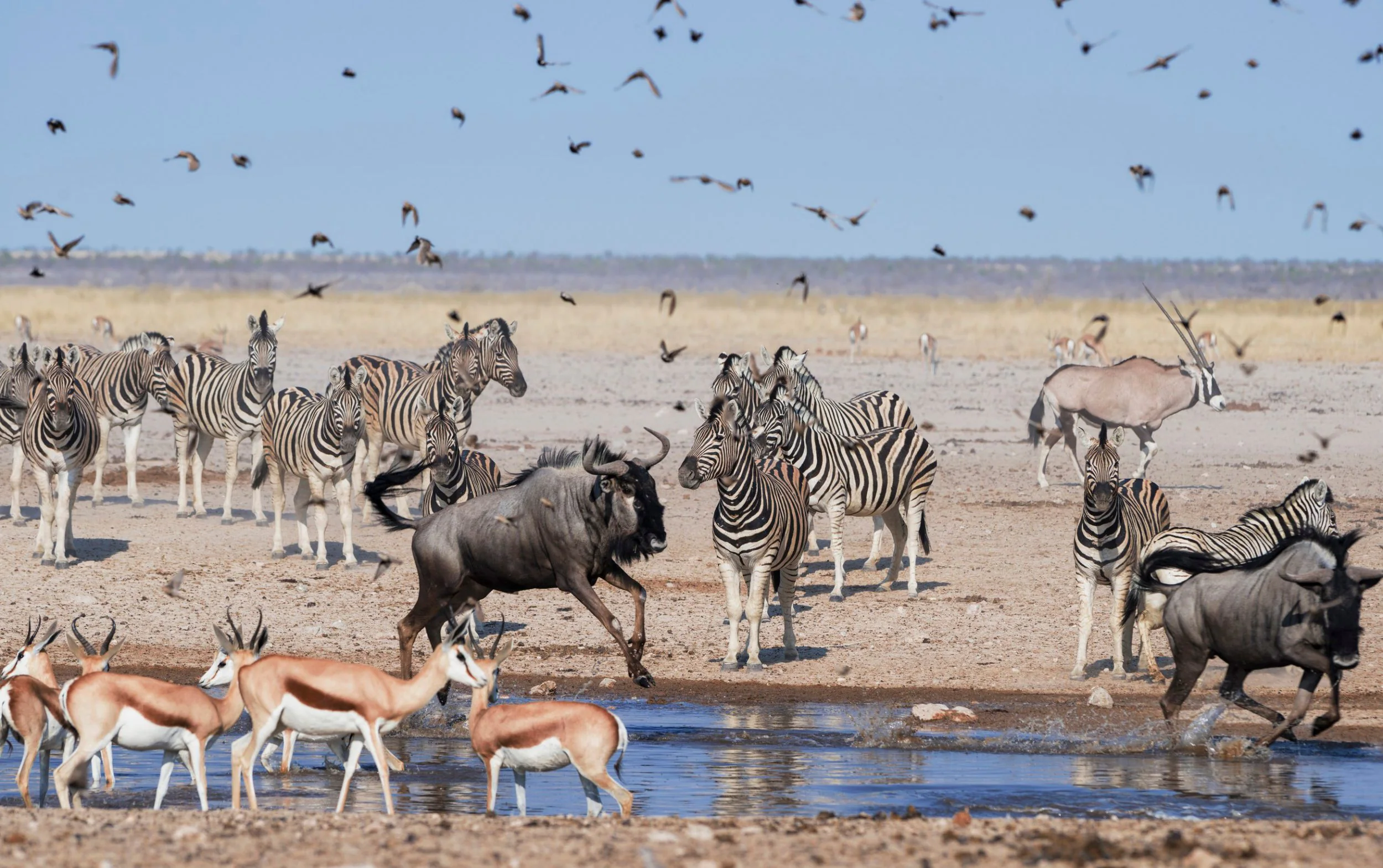Hunger: Namibia plans to kill more than 700 animals to feed citizens
Namibia is planning to kill more than 700 wild animals, including elephants, zebras and hippos, and distribute the meat to the people struggling with food insecurity as the country grapples with its worst drought in 100 years. The animals set to be culled include 83 elephants, 30 hippos, 60 buffalo, 50 impala, 100 blue wildebeest […]

hunger namibia plans to kill more than 700 animals to feed citizens
Namibia is planning to kill more than 700 wild animals, including elephants, zebras and hippos, and distribute the meat to the people struggling with food insecurity as the country grapples with its worst drought in 100 years.
The animals set to be culled include 83 elephants, 30 hippos, 60 buffalo, 50 impala, 100 blue wildebeest and 300 zebras, the country’s Ministry of Environment, Forestry and Tourism announced.
They will come from national parks and communal areas with “Sustainable game numbers” and will be killed by professional hunters, the ministry said in a press release.
The aim of the programme is to help alleviate the impacts of drought in the southwest African country, the ministry said.
- NELFUND: Kano, Borno, Benue, Katsina students top loan applicants
- Police allegedly kill suspected robber in Plateau
Namibia declared a state of emergency in May as the impacts of drought worsened. An estimated 1.4 million people – around half the population – are expected to face high levels of acute food insecurity.
The culling programme will take pressure off water resources by reducing wildlife in areas where their numbers “exceed available grazing and water,” the ministry said.
It also aims to reduce the potential for conflicts between elephants and humans, which can increase during drought when animals’ search for food and water can bring them into contact with people.
“To this effect, 83 elephants from identified conflict areas will be culled, (and) meat will be allocated to the drought relief programme,” the ministry said.
More than 150 animals have already been killed, providing more than 125,000 pounds of meat, the ministry said.
“We are happy that we can assist the country in this very difficult time and when it’s absolutely needed,” it said.
Namibia is one of several countries across southern Africa struggling with devastating drought driven by El Niño – a natural climate pattern, which has led to sharply reduced rainfall in the region – and exacerbated by the human-caused climate crisis.
A dearth of rain combined with scorching temperatures has led to shriveled crops and soaring levels of hunger for tens of millions of people in the region.
While Namibia with mid year 2024 population of 3,030,131 estimation has taken such measures to tackle food insecurity, Nigeria with estimated 229,152,217 has equally rolled out various interventions to address the current hunger and hardship in the country aggravated by the fuel subsidy removal and floating of its currency.
These interventions include the release of N570 billion to the 36 states to expand livelihood support to their citizens, the launch of Compressed Natural Gas Initiative to power our transportation economy and bring costs down, the supply of 20 trucks of rice to each of the states of the federation, including the Federal Capital Territory for distribution to the vulnerable, and supply over 2.1 million bags of assorted fertiliser to the Ministry of Agriculture for onward distribution to the states through the funding from the Central Bank of Nigeria (CBN). CNN
